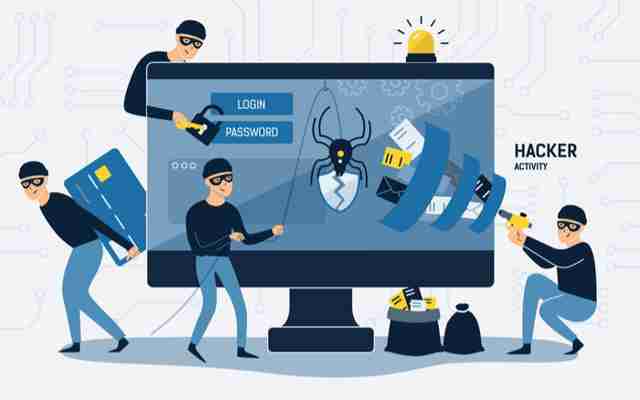‘Unhackable’ blockchains are getting hacked
High-profile security breaches and issues with privacy are massive concerns for everyone.

Now, we’re seeing more of those security issues are emerging in crypto. That’s surprising since blockchain technology has been presented as the solution to our privacy woes.
Whether blockchain is slated to become the new “backbone” of the internet or the future home for our genetic data remains to be seen. However, we’ll need to remove the rose-colored crypto-glasses if we intend to move more sensitive info onto the blockchain.

Is blockchain the new freelancing middleman?
As reported in the MIT Technology Review , hackers have stolen nearly $2 billion worth of cryptocurrency since the beginning of 2017. Most of that money has been taken from the exchanges — not from lone-wolf hackers, but organized crime rings.
The belief that blockchaining is unhackable does seem odd. This is because blockchain hacks are one of the main reasons that the general public has even heard about this decentralized technology.
Here’s the thing: blockchains aren’t unhackable

Blockchains are powerful platforms. But if we’ve learned anything from looking at high profile breaches, it’s that all technology has weak points.
For some reason, many people have gotten the idea that blockchains were an impenetrable force. Password protectors, VPNs, and even blockchains are not entirely hack-proof.
They’re leaps and bounds ahead of using the web unprotected — but you still need to be careful.
Are blockchain hacks actually on the rise?
There’s been a near-constant stream of attacks going back for at least five years. The most notable example is Mt. Gox , where nearly half a billion dollars in bitcoin was stolen from users and the company.
This year, there’s been the Cryptopia breach , a January attack that wiped out approximately 94% of the company’s holdings. The total amount is unknown, but data analysts estimate the stolen coins could be worth about $16 million total.
There’s also this attack that hit the Ethereum Classic blockchain where hackers made off with $1.1 million.
In the ERC case, Coinbase detected suspicious activity in the form of a 51% attack , a type of attack once thought to be hypothetical. This occurs when a group of miners with more than 50% control blocks new transactions to maintain the majority.
By controlling the computing power, the attacker(s) can monopolize the mining of new blocks. Then, they can prevent other miners from completing blocks while siphoning off their rewards.
Are blockchains safer than actual banks?
Forbes wrote critically about blockchain in January. The article says that people keep backing blockchain because there’s a case of industry anxiety.
It goes on to say there’s never been anything on this scale in the traditional banking world — a $2 million Bank of America robbery from 20 years ago is the biggest heist listed on Wikipedia. That number pales in comparison to the amounts stolen via hacking.
The point isn’t necessarily that the technology is bad news, but that people should be wary of keeping large sums in blockchain-powered accounts.
More from Softonic
How to learn about Bitcoin without actually investing in it ►
Everything you ever wanted to know about Bitcoin (but were afraid to ask) ►
The Best Bitcoin Apps ►
An extensive guide to cryptocurrency trading ►